Hospital security officers are calling for protection on the job from dangerous patients
SECURITY officers at Royal Prince Alfred Hospital believe it may take a death before NSW Health officials make any changes to protect security workers’ safety.

Inner West
Don't miss out on the headlines from Inner West. Followed categories will be added to My News.
- Research looks to bring an end to spread of breast cancer
- 88 doctors appointments before she was diagnosed
- New website to help parents
A COP and a security officer were shot by a patient under the influence of ice in an incident at a western Sydney Hospital last Tuesday, but security officers at Royal Prince Alfred Hospital in Camperdown believe that it may take a death before NSW Health officials make any changes to protect security workers’ safety.
NSW Health Minister Jillian Skinner has said she will meet with Health services Union officials this week to discuss upgrading security in the state’s hospitals but a date has yet to be set.
Ron Pike and Glen Dansie have over 50 years of experience working in security and the duo are pushing for changes, and say that it doesn’t get more dangerous than working in hospital security.
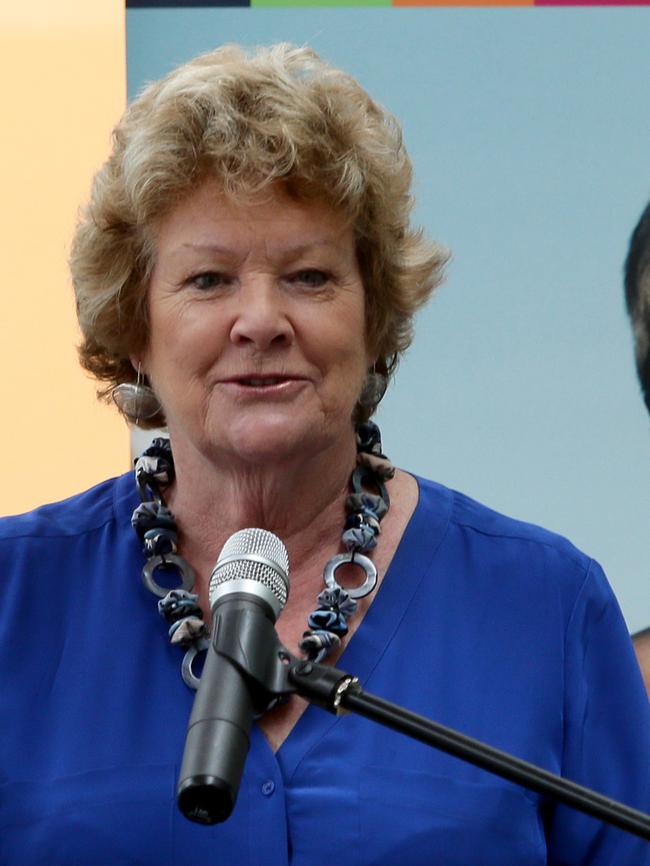
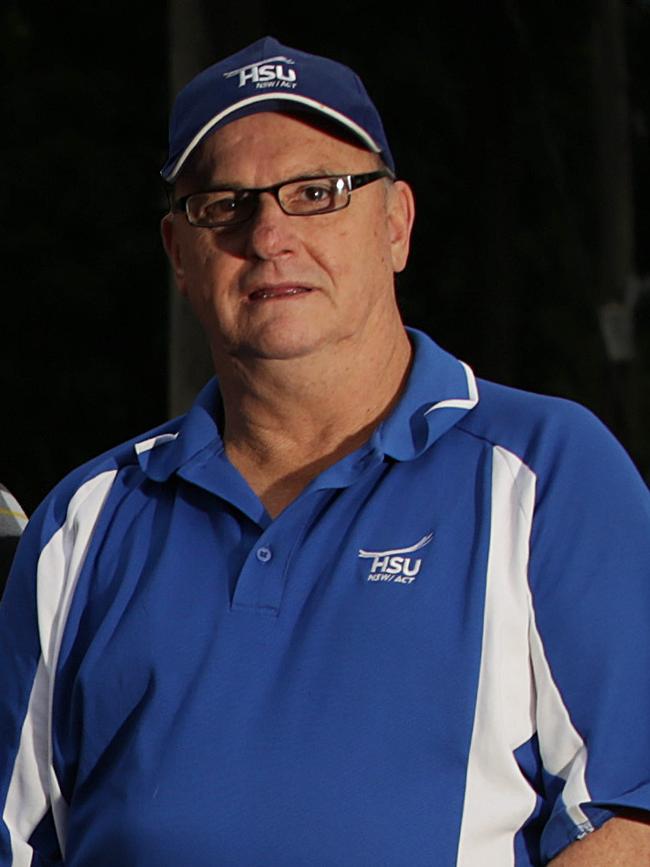
“I’ve been doing security for 27 years, and about five of those at RPA,” Mr Pike said.
“I’ve worked club and pub security, but working here has been by far the most dangerous and I’ve faced the most violence.
“It’s just getting out of control.
“Ice, mental health and alcohol cause us the biggest problems.
“We’ve got a brand new mental health facility across the road there, but there aren’t enough beds, and sometimes we’ll have the backlog from that over here in our Emergency Department for two days at a time.
He said they started seeing the problems with ice use over the last four years, and it’s just escalated continually.
“Police will bring in patients on ice in handcuffs and hand them over to us, but we’ve got no power to contain them.
“They’ll say ‘we’ve got to go now, put your handcuffs on them’ — but we don’t have any.
“We’ve got no handcuffs, no batons, no pepper spray no nothing.
“One night it took eight of us to contain someone on ice — four police officers and four of us — I’ll never forget that.”
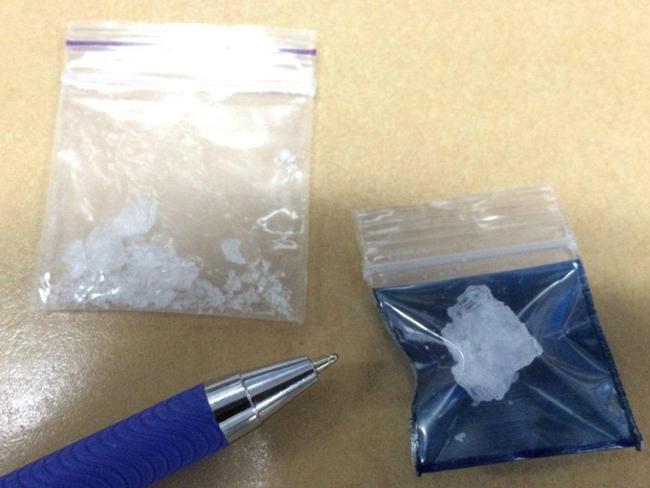
But a spokeswoman for NSW Health said that it had comprehensive policies on the management of security and violence issues in the workplace, which provide a framework for Local Health Districts/Networks to deal with security and violence issues and implement strategies governing their ongoing control at the local level.
“NSW Health does not tolerate violence against any staff member in NSW hospitals,’ she said.
“Strategies to prevent and manage violence need to take into account the fact that all patients, regardless of their condition, have the right to appropriate health care.
“Violence prevention and management training is undertaken by frontline staff to help them recognise and deal with violent behaviour.
“This approach is consistent with work health and safety obligations.
“Staff are also trained in de-escalation techniques and are able to call on emergency support including senior staff, security and Police, as necessary.
“Hospitals also have a Patient Alert System which may be used to identify patients presenting a risk to the safety of staff and other patients.
“This enables those managing the presenting patient to do so in a safe and appropriate manner.
“Occasionally adverse incidents happen, and they are investigated so that safety systems can be improved.”
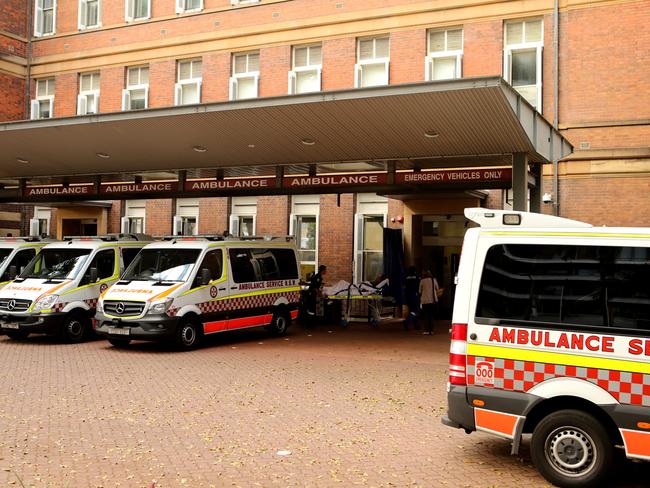
But Mr Dansie said the problems faced at hospitals like RPA were that not only do security guards have no power to do anything if a patient is affected by ice, but they also are extremely understaffed.
“On a normal day shift we have three of us working here — one in the control room, and two on the floor,” he said.
No security is permanently at the ED until the weekend, when the numbers climb to two on the floor, two on ED and one in control room for Friday, Saturday and Sunday night shifts.
“All hospitals have the same problem,” he said.
“Someone needs to die for something to happen, and before there is a change in procedures.”
Mr Pike and Mr Dansie said they’d seen it all, and that they were scared that things were only going to get worse, if the matter wasn’t addressed urgently.
“We’re faced with violence everyday here,” Mr Pike said.
“Spitting, kicking, punching, hair pulling, and I’ve even been threatened by one woman with a syringe.
“All for $24 per hour.”
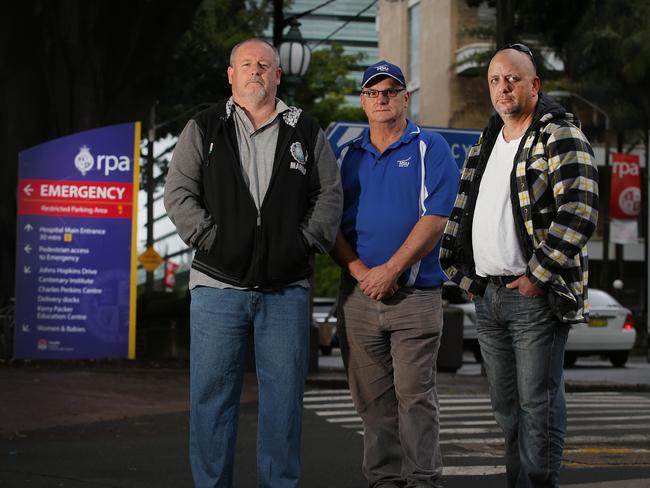
Mr Dansie said that before coming to RPA six years ago, he’d worked at Rozelle Hospital.
“I spent 20 years at Rozelle before coming here and we had the worst of the worst there,” he said.
“But working here is far more dangerous.
“At RPA we are not equipped to handle mental health or ice-effected patients.
“There’s no security room to detain dangerous patients in here, and at Rozelle we had more powers because we were Special Constables.”
Mr Dansie said that one day while working at Rozelle Hospital a patient pulled out a .22 rifle from his bag.
“He’d been transferred to us after waiting 6.5 hours at RPA,” he said.
“People like that are just a ticking time bomb and it’s an example of the sort of thing that constantly happens around here now.
“We don’t have the power to search in bags and we have to ring the police.”
Mr Pike said that he’d seen police pull machetes, knives, metal pipes, scissors and all sorts of blades out of patients bags in the ED.
Health Services Union representative Peter Mason said he believed the treatment of security officers by hospitals across the state was unfathomable.
“Every night something happens around here,” he said.
“The problem is that there are no records for that data and assaults are under reported.
“The Health department seems to think that when it comes to a security officer that if you give them a cup of tea and an Iced VoVo they’ll settle down and quieten up.”
Mr Mason said that unless something was done to either amend the Health Act, or change the role of police officers, that it was only a matter of time before something serious happened.
“Patients are at risk, Staff are at risk, security officers are at risk, and visitors to the hospital are at risk,” he said.
“Something needs to change, and urgently.”
POSSIBLE SOLUTIONS
● Mr Pike said that there are two hospitals in Victoria that are trialling stab-proof vests and tiny cameras for security guards and that syringe proof gloves were also being trialled at some institutions
● Security officers could be given authority to search bags
● Mr Dansie said he thought two permanent guards on ED all the time would help de-escalate events before they got out of control
● Amend the Health Act to give security officers similar powers to Special Constables or change the role of the police office to avoid situations of “dump and run”


